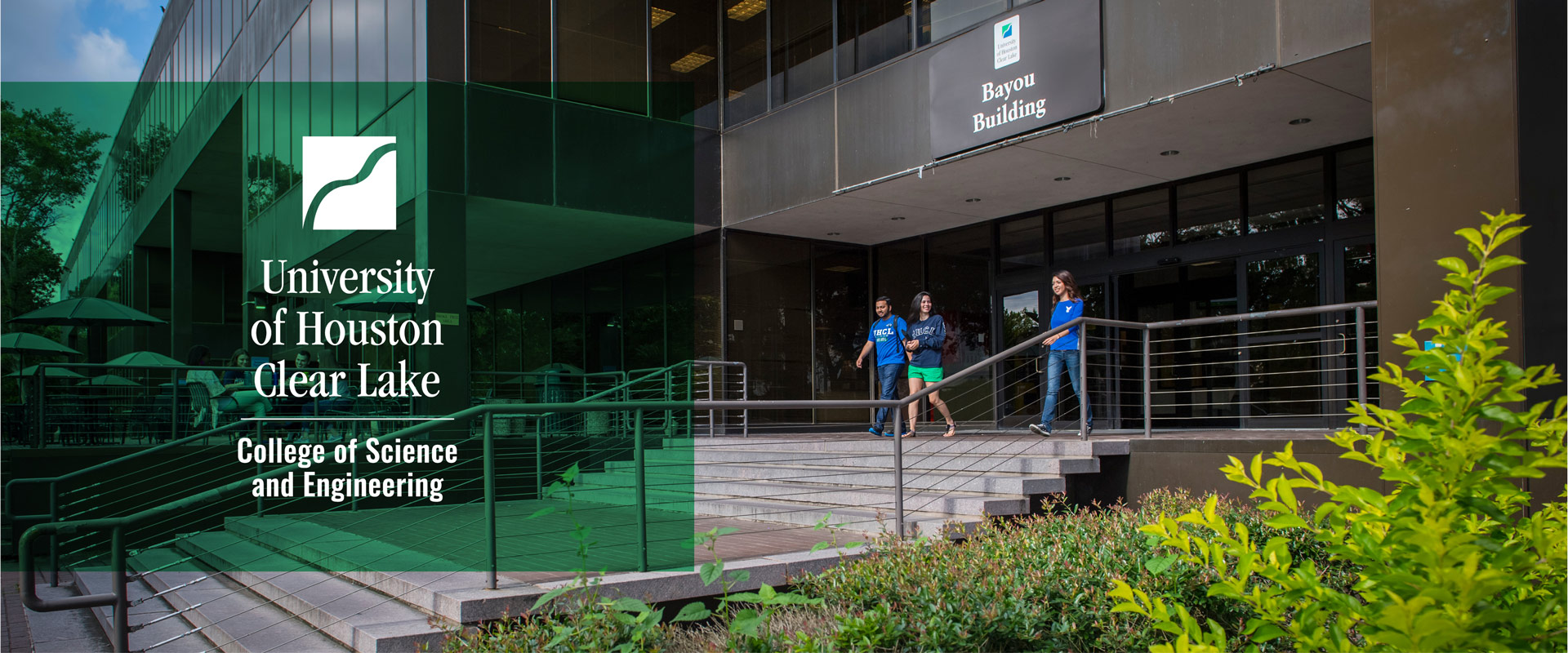- Future Students
- How to Apply
- Visit UHCL
- Admitted Students
- Tuition, Costs and Aid
- Degrees and Programs
- Contact Admissions
- Current Students
- Class Schedule
- Academic Calendar
- Advising
- Events
- Library
- Academic Resources and Support
- Student Services and Resources
- Alumni
- Lifetime Membership
- Alumni Events
- Update Your information
- Awards and Recognitions
- Give to UHCL
Program makes tuition more affordable for undergrad STEM students
March 22, 2019 | Jim Townsend

University of Houston-Clear Lake undergraduates seeking a degree in science, technology, engineering or mathematics may be eligible for a stipend of up to $2,000 per semester and $1,500 for summer courses thanks to the university’s participation in a STEM grant collaboration with other Houston universities.
UH-Clear Lake collaborates with University of Houston, UH-Downtown, Texas State University and Texas Southern University in an alliance to tap funding from National Science Foundation’s Louis Stokes Alliances for Minority Participation (LSAMP) program. TSU is the lead university in this collaborative, called officially the H-LSAMP Louis Stokes STEM Pathways and Research Alliance — H-LSAMP for short.
Stokes was a 15-term congressman who served on the powerful House Appropriations Committee and House Intelligence Committee. The first African-American elected to Congress from Ohio, he also led the Congressional Black Caucus.
While the H-LSAMP program is aimed at assisting minority STEM students, all STEM undergraduates may apply for funding, says Professor of Industrial Hygiene and Safety Magdy Akladios, department chair of Physical and Applied Sciences, and UHCL’s H-LSAMP administrator. “Even though ‘minority’ is in the name, we can’t discriminate based on race,” he said.
To qualify, undergraduate students pursuing a STEM degree must report 10 hours of service per week, be it research, mentoring, tutoring, forming study groups, collaborating on projects or “other things they would be doing as students anyway,” Akladios said. “I don’t ask them to do things outside the ordinary."
“Volunteer hours would also count,” he said. “I had a couple of students who were pre-med. They were volunteering at different universities, in hospitals, helping with surgeries. There were students going to dental schools and helping. A couple of students went on to medical schools. A few went on for their master’s degrees at research colleges. Some found jobs. They’re all successful.”
As TSU is the lead university in the alliance, UHCL will receive its share of NSF funding in a subcontract with TSU: $66,050 a year during the five-year funding cycle, for a total $330,250. This is the alliance’s fifth funding round; UHCL joined the alliance five years ago for the fourth round. From spring 2015 to fall 2018, 27 UHCL students have benefited from the program across multiple semesters. Ten students are currently receiving a stipend this spring semester.
In return for the funding, the NSF is looking to participating universities to find ways to locally institutionalize scholarships and stipends to help keep STEM students in school.
For more information, contact Akladios at akladios@uhcl.edu.






